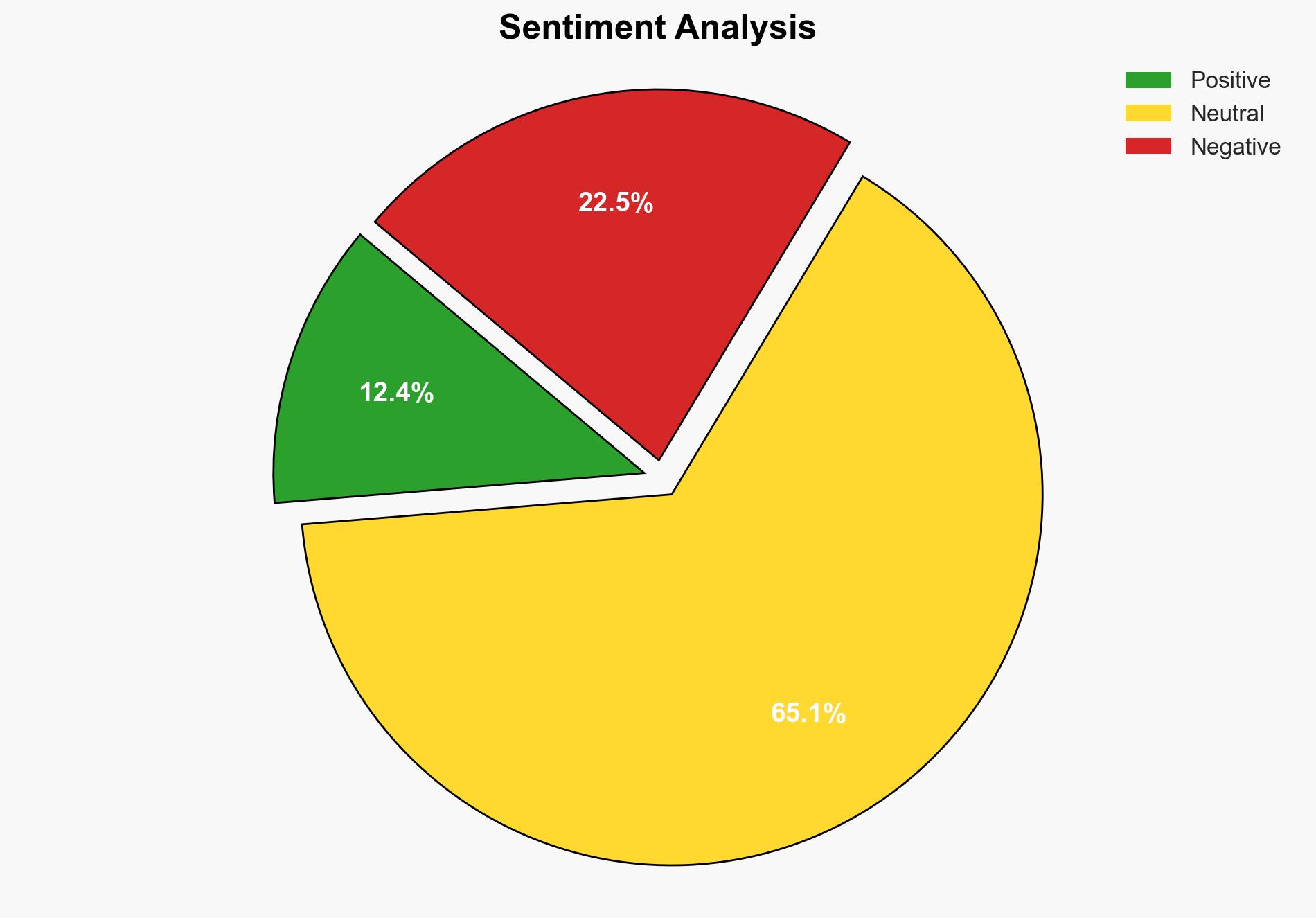Arab states and UN condemn Gaza aid blockade by Israel – BBC News
Published on: 2025-03-03
Intelligence Report: Arab states and UN condemn Gaza aid blockade by Israel – BBC News
1. BLUF (Bottom Line Up Front)
Arab states and the United Nations have condemned Israel’s blockade of humanitarian aid to Gaza, citing violations of international humanitarian law and ceasefire agreements. The blockade has heightened tensions in the region, with accusations of humanitarian supply theft and the use of starvation as a weapon. The situation poses significant risks to regional stability and international relations.
2. Detailed Analysis
The following structured analytic techniques have been applied for this analysis:
SWOT Analysis
Strengths: Israel’s strategic military capabilities and international support.
Weaknesses: International condemnation and potential isolation due to humanitarian concerns.
Opportunities: Potential diplomatic negotiations to extend ceasefire agreements.
Threats: Escalation of conflict and humanitarian crises in Gaza.
Cross-Impact Matrix
The blockade’s impact on Gaza may lead to increased regional instability, affecting neighboring countries like Egypt and Qatar, who are involved in mediating ceasefire agreements. The situation could also influence international diplomatic relations and humanitarian aid policies.
Scenario Generation
Scenario 1: Successful diplomatic negotiations lead to a temporary extension of the ceasefire, easing tensions and allowing humanitarian aid to flow into Gaza.
Scenario 2: Continued blockade results in heightened conflict, increased casualties, and further international condemnation.
Scenario 3: A stalemate persists, with intermittent violence and humanitarian aid blockades, leading to prolonged regional instability.
3. Implications and Strategic Risks
The blockade poses significant risks to regional stability, with potential spillover effects on neighboring countries. The humanitarian crisis in Gaza could exacerbate tensions, leading to increased violence and potential international intervention. Economic interests, particularly those related to humanitarian aid and reconstruction efforts, are also at risk.
4. Recommendations and Outlook
Recommendations:
- Engage in diplomatic efforts to mediate a ceasefire extension and ensure the flow of humanitarian aid to Gaza.
- Implement monitoring mechanisms to prevent the misuse of humanitarian supplies and address security concerns.
- Encourage international collaboration to address the humanitarian crisis and promote regional stability.
Outlook:
Best-case scenario: Diplomatic negotiations lead to a sustainable ceasefire and improved humanitarian conditions in Gaza.
Worst-case scenario: The blockade continues, resulting in increased violence and a deepening humanitarian crisis.
Most likely scenario: Intermittent ceasefire agreements and ongoing tensions, with periodic humanitarian aid blockades.
5. Key Individuals and Entities
The report mentions significant individuals and organizations, including Tom Fletcher, Benjamin Netanyahu, Donald Trump, Steve Witkoff, Antoine Renard, and entities such as the United Nations, Egypt, Qatar, and Saudi Arabia.





